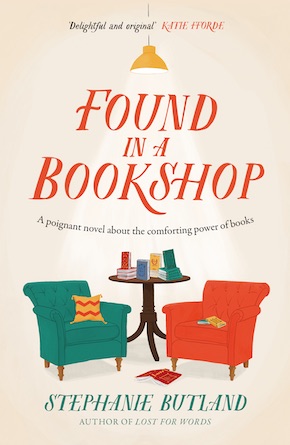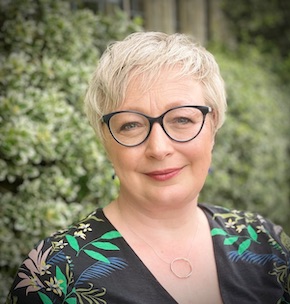Reading for joy
by Stephanie Butland
Readers can hold complex thoughts, contradictions and moral oppositions in their minds, quite comfortably. It’s one of the skills that we learn from words on a page. You can root for Emma Bovary while at the same time seeing that she is selfish and unkind. And you probably shouted ‘no!’ at the novel in your hands when she does… (no spoilers) quite a few of the things she does. You can feel wistful for both Henry Tilney and Edmund Bertram as you read Mansfield Park. Katniss Everdeen might annoy you but you would sharpen her arrows for her if you could.
So here is a contradiction for you: you can love books, and you can also decide not to finish a book.
Yes you can.
Books don’t judge you.
Books can contain, and invoke, every feeling that there is. Books can bring you to rage or tears or happiness or all three, in quick succession. Books can have such a profound effect on your emotions that they can change the course of your life. How many lawyers have been made by To Kill a Mockingbird, how many vets by the James Herriot books, how many teachers by Roald Dahl’s Matilda?
This is how books work. They take what’s in them, and add what’s in you, and the interface, more often than not, leads to picking up that book every chance you get. Sometimes the power is so great that you’re up all night; sometimes you have to (and yes, I do mean have to) cancel a coffee date so you can get to the end.
And sometimes, there’s a missing part of the chemistry. Or something in the book that just doesn’t work for you. Maybe the supposed romantic hero has the same name as the ex you will never quite recover from. It could be that the setting doesn’t appeal or there’s something in the way the characters relate to each other that doesn’t fit into the receptor that you need it to fit in to.
Sometimes, you do not care enough to want to read on.
This is something that books understand. That writers understand. That other readers understand. It’s a fact of life. All foodies do not love bananas.
So if you haven’t understood this yourself yet… take a moment. Take a breath. The next time you are fifty pages into something and rather than pick it up, you’re scrolling through your phone… you can stop reading that particular story. You can donate or pass on that book, and you can start something else.
Reading should be a pleasure and a joy, an education and a promise, a release and an escape. The books you choose for yourself should never, ever feel like a punishment or a chore.
Some authors begin with a blueprint they have laboured over; others are chasing a thought or a feeling down onto the page.”
Consider the author.
Living or dead, they have all done the same thing: laid down word after word, making a story.
They have many ways of doing it. Some create a story as though they are knitting a scarf. One stitch is made from the last. Quietly, slowly, through work and patience, a book – a scarf – grows.
Some authors create their stories in a frenzy of activity, short and sharp and frantic, as though they and their idea are lovers reunited. Some treat their work with caution, and do not so much write as listen, sometimes for years, for whispers and words to set down.
Some authors begin with a blueprint they have laboured over; others are chasing a thought or a feeling down onto the page; others yet write while hoping to excise the thing that squats in their belly and makes them separate to everyone else, however hard they try to fit in.
There are authors who write for a ravenous, waiting public, and authors who put down word after word with no expectation that their work will ever be seen by someone else.
The result is the same. There is a book in your hand. Behind it – maybe centuries behind it – stands an author. When you read their first sentence, you are completing their work.
Not all authors care about readers. Some of them write for the good of their own souls, and some of them, for all of their vivid imaginings, could never see their work being published.
But for others, many others, your gaze on the page of words they have written is the manifestation of a dream.
Thank you.
Reading is not a test. Whether or not you love a book is not a matter for debate; and not something you can be persuaded into.”
I would say, imagine the reader, but you don’t need to imagine yourself; you know how this works, this astonishing-ordinary transaction. Words plus spaces on paper, plus light bouncing on to eyes, plus brain, equal a place that can feel more real than the real world.
Now imagine every reader’s vision of the world they are reading. Some things are fixed in place by the author: Emily Brontë’s moors in Wuthering Heights, E.M. Forster’s Florence in A Room with a View, Zoë Heller’s London in Notes on a Scandal. Some are more… abstract. Your imagined clock-striking-thirteen is almost certainly not mine. The cup you’d drink tea from in 221B Baker Street has a different pattern around the rim to mine: yours is a royal blue scalloped line, perhaps, while mine is made up of yellow roses interspersed with ivy leaves.
Does this matter?
No, it most certainly – most gloriously – does not.
Reader, the sound your Mrs March makes with her mouth just before she launches into ‘Onward Christian Soldiers’ is entirely correct. The way you envision Hobbiton is the right one, no matter how different it is from the film. The woman who lived in London in the 1950s has a different relationship with Small Island by Andrea Levy than the woman who lives there now, or the teenager who has yet to travel outside Yorkshire.
In short: you, dear reader, are correct. You are always correct.
Not only in what you imagine, but in what you feel. You are allowed to not-love the novel the rest of the world is raving about; you are allowed to cordially loathe your sister’s favourite author. Reading is not a test. Whether or not you love a book is not a matter for debate; and not something you can be persuaded into.
Books are the magical everyday that is all your own.
Read on, and enjoy.
—

Stephanie Butland is the author of seven novels, including the beloved bookshop tale Lost For Words. Stephanie lives near the sea in the northeast of England, with her husband Alan and Harris the greyhound. She writes in a studio at the bottom of her garden, loves to talk books and meet readers, and is an occasional performance poet. Found in a Bookshop is out now in paperback and audio download from Headline Review.
Read more
stephaniebutlandauthor.com
@under_blue_sky
@headlinepg
Author photo by Alan Butland

